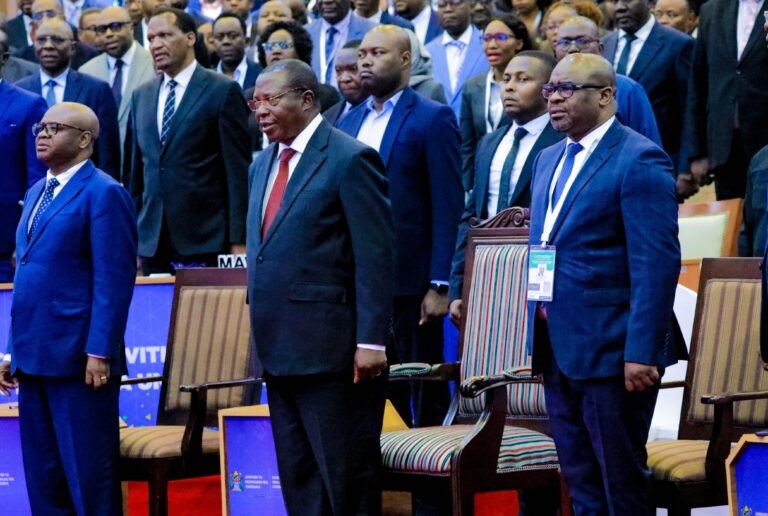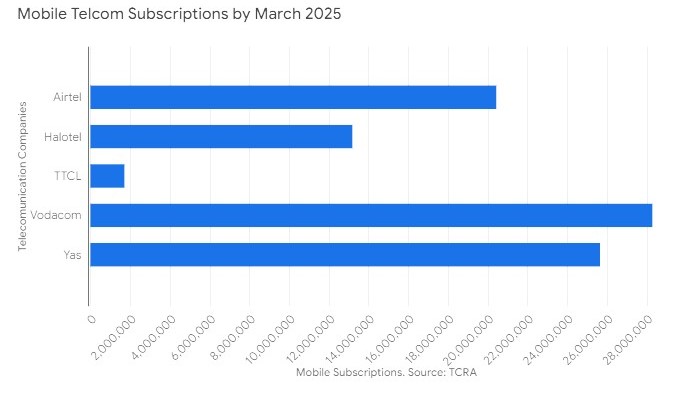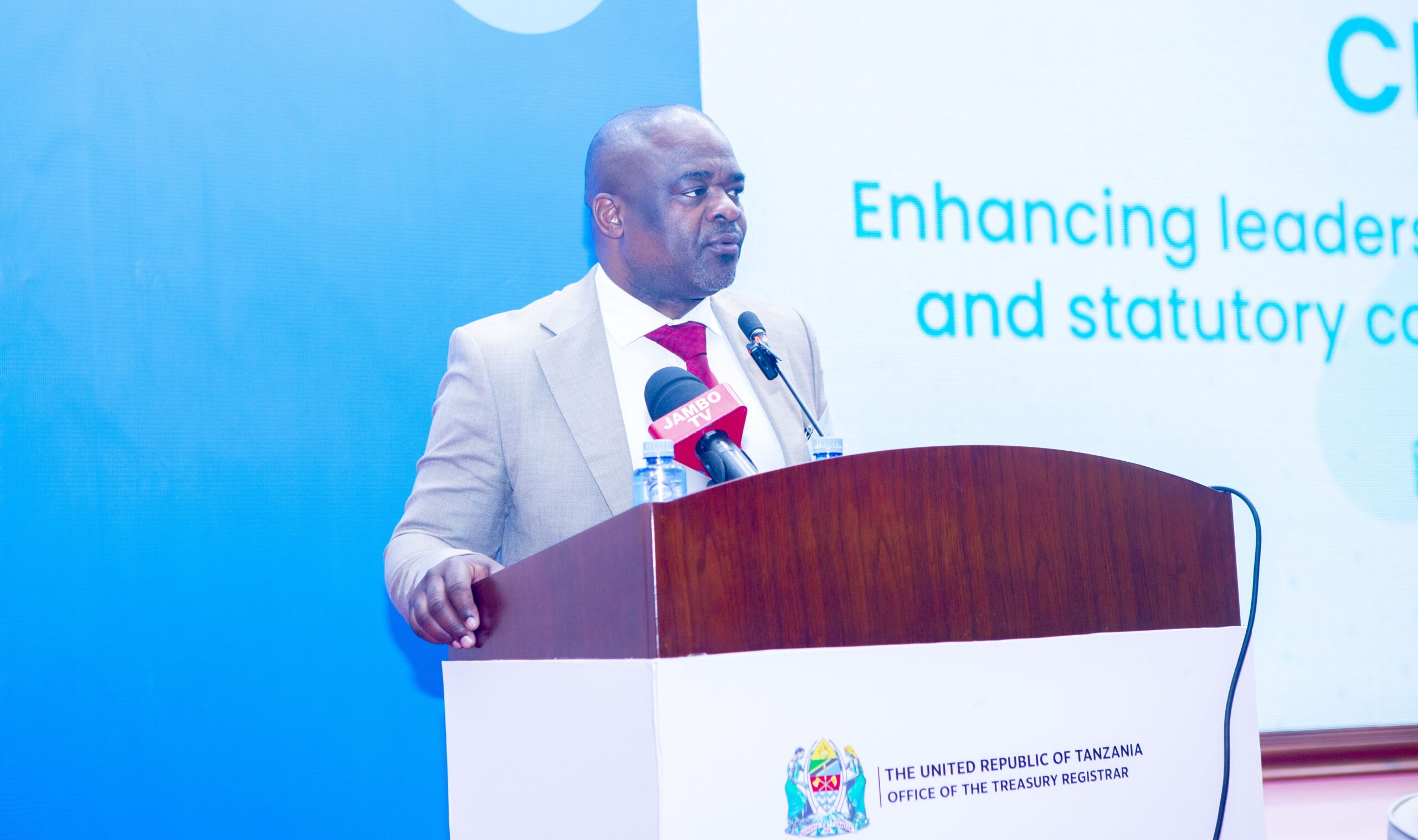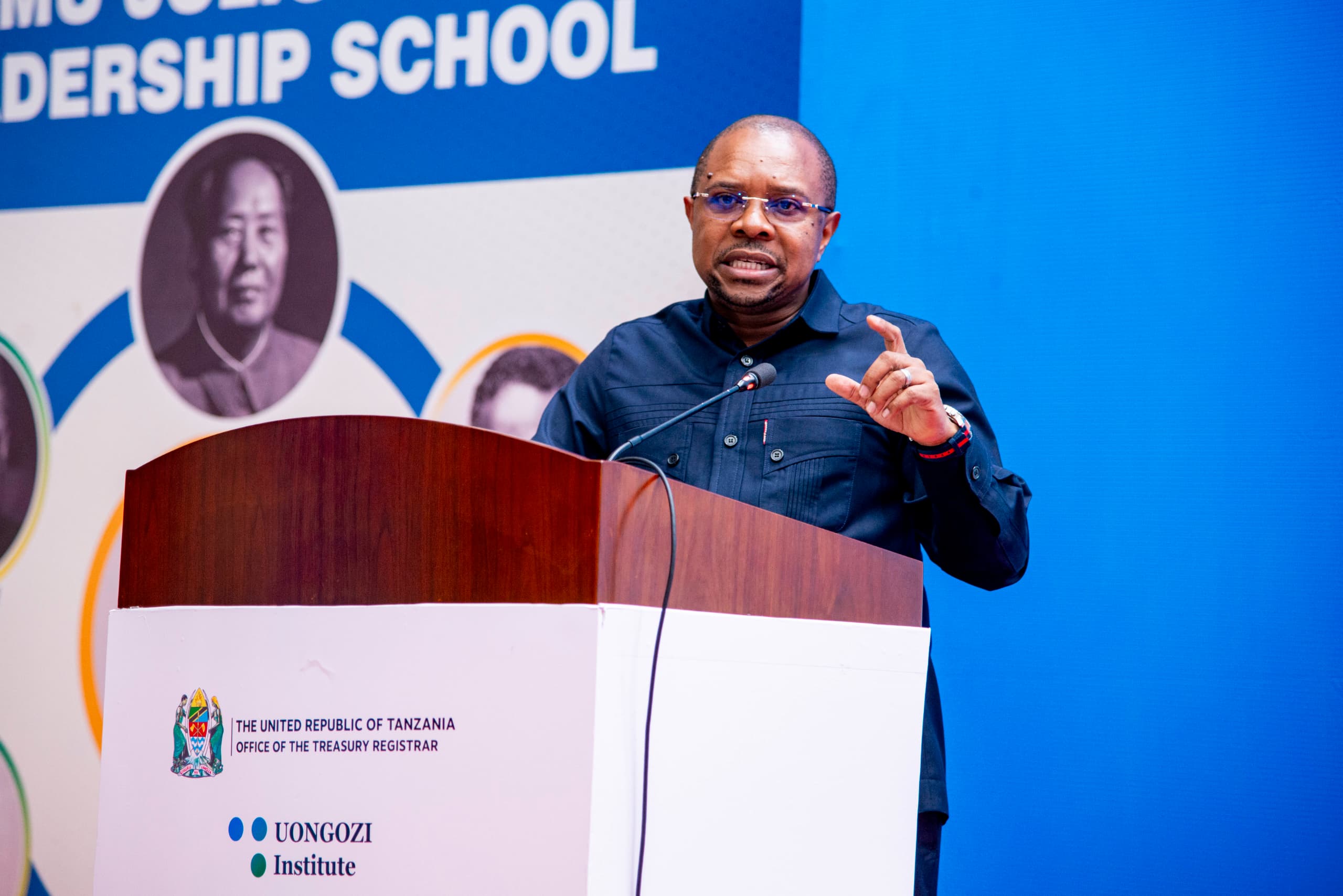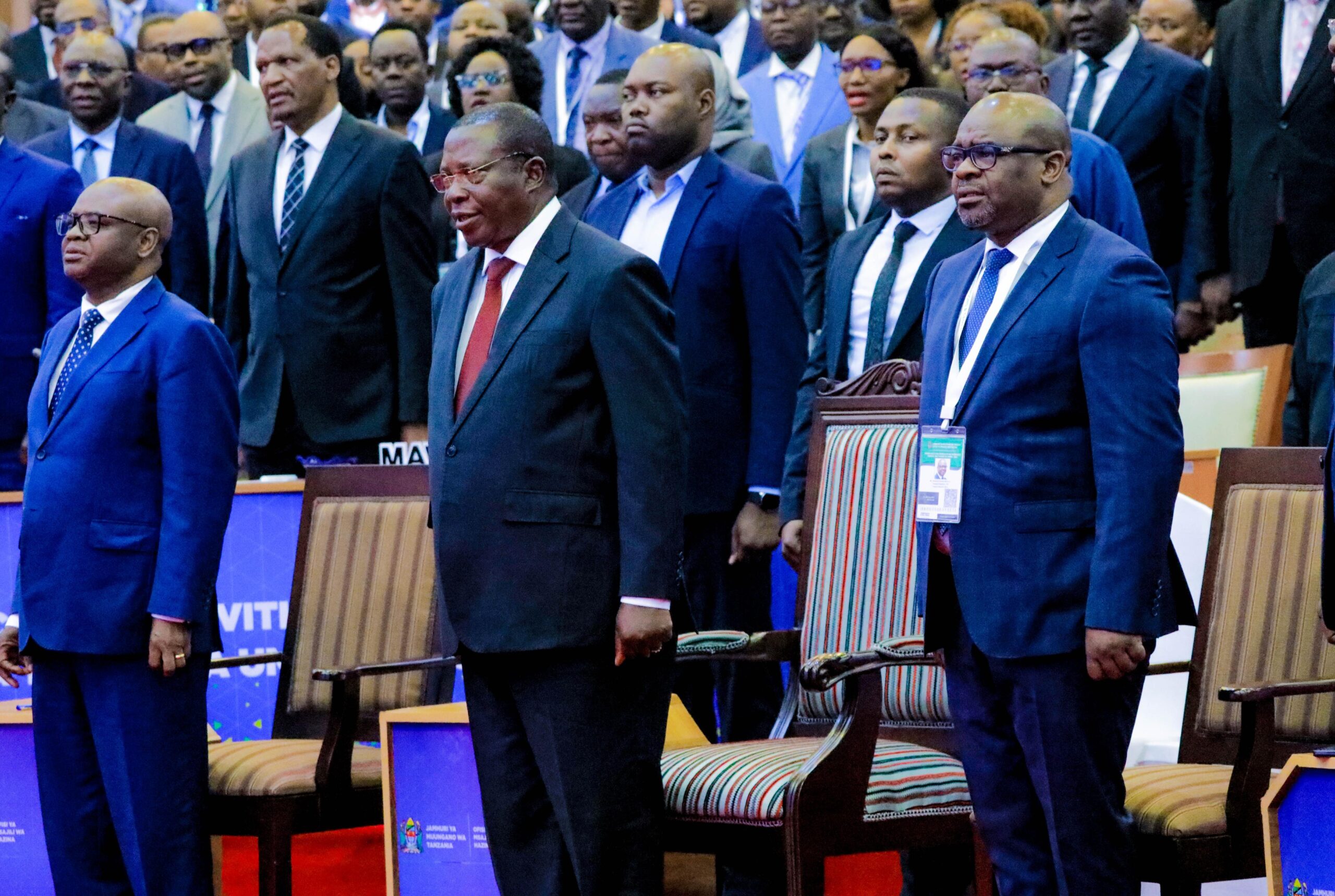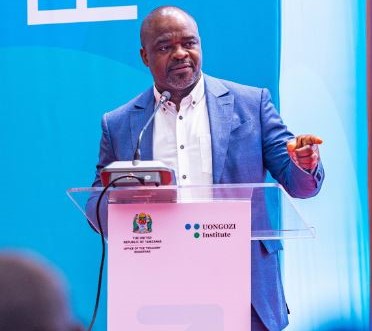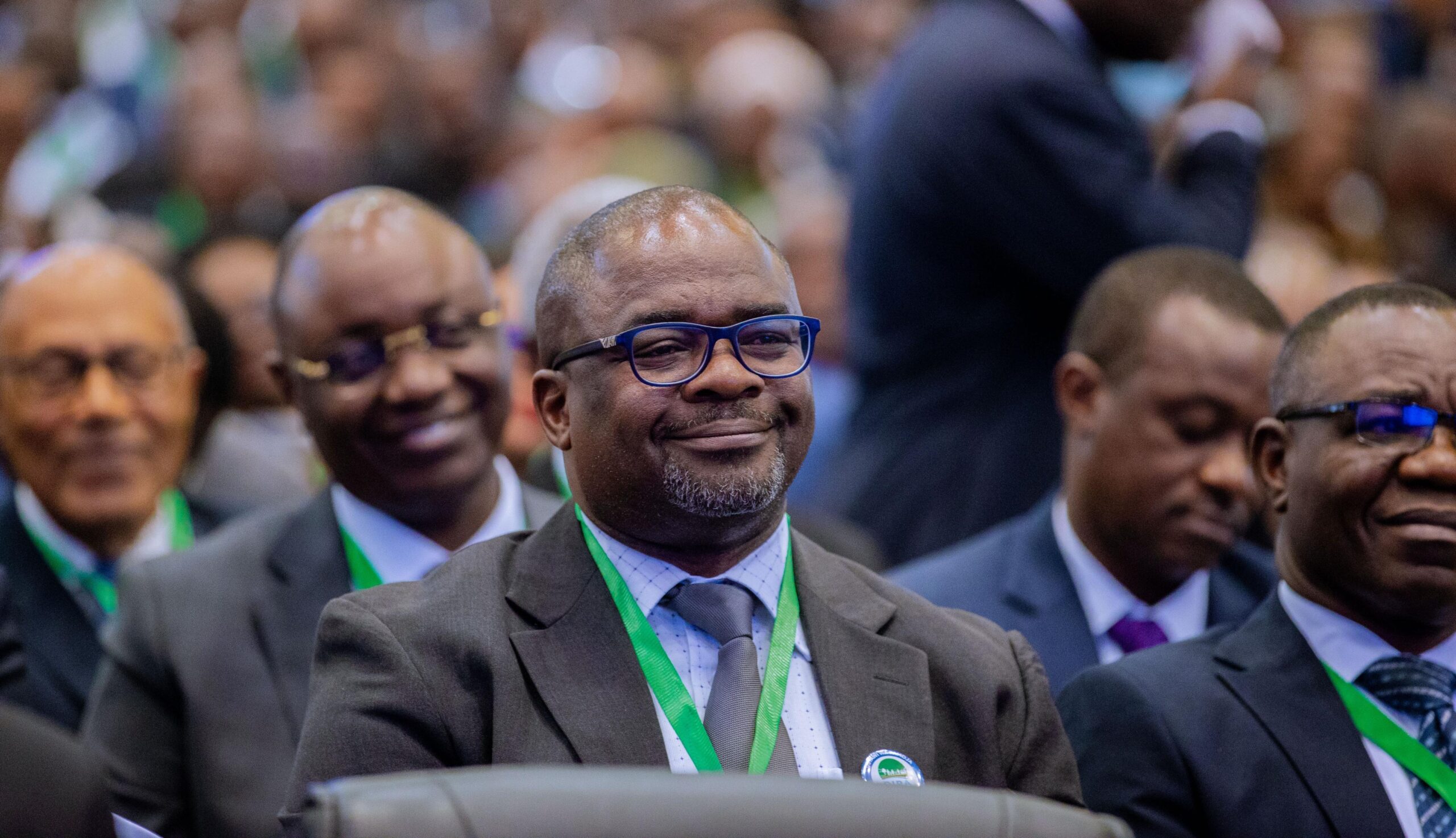Arusha. Inside the iconic Simba Hall at the Arusha International Conference Centre (AICC) on August 23, 2025, the atmosphere was both serious and ambitious.
The Chairpersons and CEOs Forum 2025, which convened over 650 senior executives from more than 300 public institutions, felt less like a routine corporate gathering and more like a strategic national briefing.
Over four days, the forum examined interlinked issues, exposing both the strengths and limitations of Tanzania’s public sector, while charting a path forward defined by regional integration, digital reform, governance, and performance accountability.
The tone was set early by Vice President Dr Philip Mpango, who, from the plenary stage, wasted no time in calling for a radical shift in how Tanzania’s public institutions operate.
“To thrive in a global economy, we must think beyond our borders,” Dr Mpango declared.
“Public entities must not just serve local needs. They must become ambassadors of Tanzanian excellence across Africa and the world.”
It was a challenge, and a call to action. With breakout sessions held across venues such as PAPU Tower, Gran Meliá Arusha, and Mount Meru Hotel, the forum sustained its focus on these critical themes.
The pressure to expand, the demand to perform
At the heart of Dr Mpango’s keynote was a strategic pivot: Tanzania’s public corporations, once concentrated on domestic service delivery, are now expected to extend their footprint into regional markets, pursue cross-border partnerships, and attract foreign investment.
The logic is clear. For Tanzania to compete globally, its public institutions must be more than custodians of national resources; they must become engines of international business.
But such ambition comes with responsibility. Dr Mpango reminded delegates that Sh86 trillion in government investments are tied up in public enterprises, and citizens are still waiting for tangible returns.
“Reforms are not optional,” he stressed. “They are a responsibility.
These institutions must deliver value, stimulate innovation, create jobs, and boost revenue.”
From reliance to revenue: The subsidy question
One theme that resonated across sessions was the urgency of moving public entities from dependence on state subsidies to financial self-sufficiency.
It is a message that President Samia Suluhu Hassan has consistently reinforced, and at this forum, it took centre stage.
Deputy Prime Minister Dr Doto Biteko, in his closing remarks, underscored the point with urgency.
“Tanzanians depend on you to transform their lives,” he said. “With such massive government investment, every institution has a debt, not just financial, but moral, to deliver real change.”
He cited examples of progress. The Tanzania Petroleum Development Corporation (TPDC) had doubled its contribution to the Government Consolidated Fund within a year, while the National Housing Corporation (NHC) recorded a 363 percent surge in revenue contribution.
But Dr Biteko warned that many institutions remain stagnant.
The message from the top leadership was unambiguous: underperformance will no longer be tolerated.
Every board chairperson and CEO will be held to account.
Governance under the microscope
Governance dominated much of the discussion, seen as the foundation upon which reform, innovation, and growth must be anchored.
Treasury Registrar Nehemia Mchechu presented an update on the state of public investments.
He noted that the value of government assets in public institutions had risen by 82 percent, from Sh65 trillion in 2020 to Sh86 trillion in 2025, growth largely driven by strategic sectors such as energy and infrastructure.
Yet Mr Mchechu emphasised that the figures told only part of the story.
What needed to change, he argued, were the fundamentals: financial discipline, procurement integrity, human resource reforms, and smarter contract management.
The digital divide: untapped potential in SOEs
Another pressing issue was digital and financial inclusion, or more precisely, the lack thereof.
Kennedy Komba, Director of Financial Deepening and Inclusion at the Bank of Tanzania, was blunt in his assessment.
While mobile money use is widespread, formal financial inclusion remains limited, with only 24 percent of Tanzanian adults holding bank accounts.
More worrying, a significant number of Tanzanians, 30 percent of women and 40 percent of men, do not have SIM cards registered in their names, cutting them off from digital services.
Mr Komba said State Owned Enterprises (SOEs) were uniquely positioned to lead the digital transformation.
“With their reach in transport, energy, and telecoms, public corporations must spearhead digital public infrastructure,” he argued.
He called for universal digital IDs, seamless payment systems, and the introduction of digital salaries.
“It’s not just about access, it’s about usability and trust,” he added.
To achieve this, he pressed for public-private partnerships, people-centred strategies, and nationwide digital literacy campaigns.
Cutting bureaucracy, cultivating agility
Private-sector voices also made their mark. Fatma Abdallah, CEO of Puma Energy Tanzania, urged leaders to confront internal obstacles that hinder innovation.
Bureaucracy, she argued, was not inherently negative — but left unchecked, it stifles efficiency.
Ms Abdallah proposed a five-pillar transformation model built around agile leadership, governance reform, workforce empowerment, digital tools, and environmental, social and governance (ESG) accountability.
“We must become more agile, more responsive, and more focused on outcomes,” she said. “We can’t compete globally if we’re stuck in outdated processes.”
Her remarks drew applause and reflected a wider sentiment: reform must begin within.
Africa’s credit autonomy and Tanzania’s role
The forum also widened its lens to continental finance.
Ambassador Marie-Antoinette Rose-Quatre from the African Peer Review Mechanism (APRM) introduced the forthcoming African Credit Rating Agency (AfCRA), a homegrown alternative to Western rating agencies such as Moody’s and Fitch.
“African economies are often misjudged through foreign lenses,” she said. “AfCRA will give us a fairer, more contextual assessment.”
She applauded Tanzania’s SOE reforms, describing the country as a strategic trade hub with the potential to nurture regional champions under the AfCFTA framework.
Her recommendation to Tanzanian institutions was clear: pursue alternative financing options, from regional bond markets to subsidiary listings, and leverage governance reforms as a platform for long-term financial autonomy.
Awards, accountability, and a path forward
From the outset, performance was at the centre of the forum’s agenda, underscored during the opening day’s recognition ceremony.
Institutions that had demonstrated improvements in governance, revenue, innovation, or service delivery were honoured in a ceremony led by the Office of the Treasury Registrar.
In the commercial institutions category, the National Housing Corporation (NHC), Tanzania Petroleum Development Corporation (TPDC), and State Mining Corporation (STAMICO) were recognised for revenue and profitability growth.
For non-commercial institutions, judged on efficiency and reduced subsidy reliance, the winners included the Tanzania Forest Services (TFS), the Tanzania Tobacco Board (TTB), and the National Bureau of Statistics (NBS).
In the combined category of commercial and regulatory institutions, the Bank of Tanzania (BOT), Tanzania Medicines and Medical Devices Authority (TMDA), and Tanzania Mercantile Exchange (TMX) were recognised for strong governance and transparency.
For public service delivery, where digital transformation and customer satisfaction were the key criteria, honours went to the Jakaya Kikwete Cardiac Institute (JKCI), the Warehouse Receipt Regulatory Board (WRRB), and the Land Transport Regulatory Authority (LATRA).
These awards were more than symbolic. They carried a message: that excellence is attainable, accountability is real, and transformation is already underway.
But the celebrations were not an end in themselves. They were meant to inspire, to raise the bar, and to reinforce that accountability has become a permanent fixture.
Final thoughts: a sector at the crossroads
The CEOs Forum 2025 went beyond speeches and awards.
It laid bare the central tensions shaping Tanzania’s development: ambition versus capacity, innovation versus inertia, and independence versus dependence.
As the country seeks regional leadership and deeper continental integration, the forum revealed that public institutions are both the engine and the testing ground.
Their success or failure will determine not just quarterly returns, but the trajectory of Tanzania’s economy, governance, and place in the world.
Planning and Investment Deputy Minister Stanslaus Nyongo reminded participants that Tanzania’s ambition to become a $1 trillion economy by 2050 will rely not only on bold ideas but also on strong, disciplined institutions capable of executing them.
And as Vice President Mpango had underscored at the outset: “Strong governance of public institutions is not just about financial returns. It’s about service. It’s about jobs. It’s about trust.”

